#etc they all look down on people and have no understanding of nuance when it comes to ethics and capitalism
Explore tagged Tumblr posts
Text
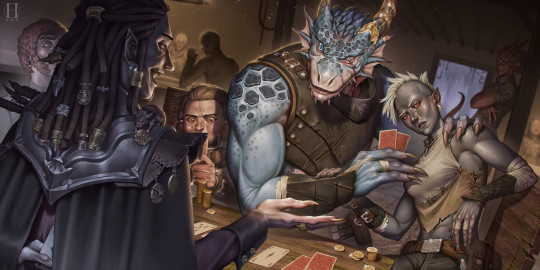
Dm Tip: Playing the Villain/ Guidelines for "Evil" Campaigns
I've never liked the idea of running an evil game, despite how often I've had people in my inbox asking how I'd go about it. I'm all about that zero-to-hero heroic fantasy not only because I'm a goodie twoshoes IRL but because the narrative-gameplay premise that d&d is built around falls apart if the party is a bunch of killhappy murder hobos. Not only would I get bored narrating such a game and indulging the sort of players who demands the freedom to kill and torture at will (I've had those before and they don't get invited back to my table), but the whole conceit of a party falls through when the obviously villainous player characters face their first real decision point and attempt to kill eachother because cooperation is a thing that goodguys do.
Then I realized I was going about it all wrong.
The problem was I had started out playing d&d with assholes, those "murder and torture" clowns who wanted to play grand-theft-auto in the worlds I'd created and ignore the story in favour of seeing how much unchallenged chaos they could create. They set my expectations for what an evil campaign was, and I spent the rest of my time developing as a dungeonmaster thinking " I Don't want any part of that"
But what would an evil campaign look like for my playgroup of emotionally healthy friends who understand character nuance? What would I need to change about the fundamental conceit of d&d adventures to refocus the game on the badguys while still following a similar enough narrative-gameplay premise to a hero game? How do we make that sort of game relatable? What sort of power/play fantasy can we indulge in without going off the deepend?
TLDR: In an evil campaign your players aren't playing the villains, they're the MINIONS, they're mooks, henchmen, goons, lackeys. They're the disposable underlings of uncaring overseers who have nothing but ill intent towards them and the world at large.
Where as in a hero game the party is given the freedom to challenge and overthrow corrupt systems, in an evil game the party is suck as part of that corrupt system, forced to bend and compromise and sacrifice in order to survive. The fantasy is one of escaping that corrupt system, of biding your time just long enough to find an opening, find the right leverage, then tossing a molitov behind you on the way out.
Fundamentally it's the fantasy of escaping a shitty job by bringing the whole company down and punching your asshole boss in the face for good measure.
Below the cut I'm going to get into more nuance about how to build these kinds of narratives, also feel free to check out my evil party tag for campaigns and adventures that fit with the theme.
Designing a campaign made to be played from the perspective of the badguys requires you to take a different angle on quest and narrative design. It’s not so simple as swapping out the traditionally good team for the traditionally bad team and vis versa, having your party cut through a dungeon filled with against angel worshiping holyfolk in place of demon worshipping cultists etc.
Instead, the primary villain of the first arc of the campaign should be your party’s boss. Not their direct overseer mind you, more CEO compared to the middle managers your party will be dealing with for the first leg of their journey. We should know a bit about that boss villain’s goals and a few hints at their motivation, enough for the party to understand that their actions are directly contributing to that inevitable doom.
“Gee, everyone knows lord Heldred swore revenge after being banished from the king’s council for dabbling in dark magic. I don’t know WHY he has us searching for these buried ancient tablets, but I bet it’s not good”
Next, you need a manager, someone who’s a part of the evil organization that the party directly interfaces with. The manager should have something over the party, whether it be threats of force, blackmail, economic dependency… anything that keeps the antiheroes on the manager’s leash. Whether you make your manager an obvious asshole or manipulative charmer, its important to maintain this power imbalance: The party arn’t going to be rewarded when the boss-villain’s plan goes off, the manager is, but the manager’s usefulness to the boss-villain is contingent on the work they’re getting the party to do. This tension puts us on a collison course to our first big narrative beat: do the party get tired of the manager’s abuse and run away? Do they kill the manager and get the attention of the upper ranks of the villainous organization? Do they work really hard at their jobs despite the obvious warning signs and outlive their usefulness? Do they upstage their manager and end up getting promoted, becoming rivals for the boss-villain’s favor?
Building this tension up and then seeing how it breaks makes for a great first arc, as it lets your party determine among themselves when enough is enough, and set their goals for what bettering the situation looks like.
As for designing those adventures, you’ll doubtlessly realize that since the party arn’t playing heroes you’ll need to change how the setup, conflict, and payoff work. They’re still protagonists, we want them to succeed after all, but we want to hammer home that they’re doing bad things without expecting them to jump directly to warcrimes.
Up to no good: The basic building block of any evil campaign, our party need to do something skullduggerous without alerting the authorities. This of course is going to be easier said than done, especially when the task spins out of control or proves far more daunting than first expected. The best the party can hope for is to make a distraction and then escape in the chaos, but it will very likely end with them being pursued in some manner (bounties, hunters, vengeful npcs and the like). Use this setup early in a campaign so you have an external force gunning for your party during the remainder of their adventures.
Dog eat dog: It’s sort of cheating to excuse your party’s villainous actions by having them go up against another villain who happens to be worse than they are. The trick is that we’re not going after this secondary group of outlaws because they’re bad, we’re doing it because they’ve either got something the boss wants, or they’re edging in on the boss’s turf. This sort of plotline sees the party disrupting or taking advantage of a rival’s operation, then taking over that operation and risking becoming just as villainous as that rival happened to be. This can also be combined with an “Up to no good” plot where both groups of miscreants need to step carefully without alerting an outside threat.
The lesser evil: This kind of plot sees your party sent out to deal with an antagonistic force that’s a threat not only to the boss’s plans but to everyone in general. In doing so they might end up fighting alongside some heroes, or accidentally doing good in the long run. This not only gives your party a taste of heroism, but gives them something in their back pocket that could be used to challenge the boss-villain in the future.
The double cross: In order to get what they want, the party need to “play along” with a traditional heroic narrative long enough to get their goal and then ditch. You have them play along specifically so they can get a taste of what life would be like if they weren't bastards, as well as to make friends with the NPCs inevitably going to betray. This is to make it hurt when you have the manager yank the leash and force the party to decide between finishing the job , or risk striking out on their own and playing hero in the short term while having just made a long term enemy. This is sort of plot is best used an adventure or two into the campaign, as the party will have already committed some villainous deeds that one good act can’t blot out.
Next, lets talk about the sort of scenarios you should be looking to avoid when writing an evil campaign:
Around the time I started playing d&d there was this trend of obtusely binary morality systems in videogames which claimed to offer choice but really only existed to let the player chose between the power fantasy of being traditionally virtuous or the power fantasy of being an edgy rebel. Early examples included:
Do you want to steal food from disaster victims? in Infamous
Do you as a space cop assault a reporter who’s being kind of annoying to you? in Mass Effect
Do you blow up an entire town of innocent people for the lols? in Fallout (no seriously check out hbomberguy’s teardowm on fallout 3’s morality system and how critics at the time ate it up)
I think these games, along with the generational backwash of 90s “edge” and 00s “grit” coloured a lot of people's expectations ( including mine) about what a "villain as protagonist" sort of narrative might look like. They're childish exaggerations, devoid of substance, made even worse by how blithely their narratives treat them.
Burn down an inn full of people is not a good quest objective for an evil party, because it forces the characters to reach cartoonish levels of villainy which dissociates them from their players. Force all the villagers into the inn so we can lock them inside and do our job uninterrupted lets the party be bad, but in a way that the players can see the reason behind it and stay synced up with their characters. The latter option also provides a great setup for when the party's actually monstrous overseer sets the inn on fire to get rid of any witnesses after the job is done. Now the party (and their players) are faced with a moral quandary, will they let themselves be accessories to a massacre or risk incurring their manager's wrath? Rather than jumping face first into cackling cruelty, these sorts of quandaries have them dance along the knife's edge between grim practicality and dangerous uncertainly; It brings the player and character closer together.
Finally, lets talk about ending the villain arc:
I don't think you can play a whole evil campaign. Both because the escalation required is narratively unsustainable, but also because the most interesting aspect of playing badguys is the breaking point. Just like heroes inevitably having doubts about whether or not they're doing the right thing, there's only so long that a group of antiheroes can go along KNOWING they're doing the wrong thing before they put their feet down and say "I'm out". I think you plan a evil campaign up until a specific "there's no coming back from this" storybeat, IE letting the Inn burn... whether or not the party allows it to happen, it's the lowest point the narrative will allow them to reach before they either fight back or allow themselves to be subsumed. If they rebel, you play out the rest of the arc dismantling the machine they helped to build, taking joy in its righteous destruction. If they keep going along, show them what they get for being cogs: inevitably betrayed, sacrificed, or used as canon fodder when the real heroes step in to do their jobs for them.
Art
#dm tip#dm tips#writing advice#evil party#drafting the adventure#dnd#d&d#dungeons and dragons#blades in the dark#ttprg#pathfinder
452 notes
·
View notes
Text
i’ve seen a lot of people in general agreement of the headcanon that victor is on the spectrum, but i’ve very rarely seen someone examine the why, and being the persnickety superfluous person that i am (and not being immune to projection myself) i thought i’d try my hand at it and break down his autistic traits!
disclaimer that this interpretation is speculative and is simply my unprofessional neurodivergent opinion + it’s based on contemporary understandings of psychology, which were not part of shelley's context, however autistic people have always existed even if there wasnt a word for it during that time period, etc etc. you know the drill
without further ado!
-- communication & social interaction
first and foremost, many autistics struggle with socialization. victor’s inclination to attach himself to a single friend (henry) and only talking to those inside of his close circle rather than forming many connections reflects this tendency, and he himself acknowledges his dislike and indifference of strangers. for example:
“It was my temper to avoid a crowd and to attach myself fervently to a few. I was indifferent, therefore, to my school-fellows in general; but I united myself in the bonds of the closest friendship to one among them”
“My life had hitherto been remarkably secluded and domestic, and this had given me invincible repugnance to new countenances… I believed myself totally unfitted for the company of strangers”
furthermore, he lacks relationship degradation (he does not require regular interaction or relationship maintenance to sustain a bond). during the creation process, he (presumably) goes months without writing to his family and friends, which clerval lectures him for:
“Very well, and very happy, only a little uneasy that they hear from you so seldom. By the by, I mean to lecture you a little upon their account myself."
yet upon his arrival at ingolstadt:
"...nothing could equal [his] delight on seeing Clerval."
victor also takes things literally several times and social nuances can fly over his head. he demonstrates this literalism when first meeting elizabeth:
"And when, on the morrow, she presented Elizabeth to me as her promised gift, I, with childish seriousness, interpreted her words literally and looked upon Elizabeth as mine"
and, of course, the infamous i will be with you on your wedding-night scene, when the creature obviously means he tends to harm elizabeth, not victor himself:
“It is well. I go; but remember, I shall be with you on your wedding-night.” I started forward and exclaimed, “Villain! Before you sign my death-warrant, be sure that you are yourself safe!"
he also goes nonverbal and groans/vocalizes instead of speaking when upset. there's several instances of this that i can recall (i believe another is with walton), but i could only find one, where elizabeth has to speak for him during their visit to justine:
"When she saw who it was, she approached me and said, “Dear sir, you are very kind to visit me; you, I hope, do not believe that I am guilty?” ... I could not answer. “No, Justine,” said Elizabeth"
and this is more of a sidenote but he gives walton every. minute. detail. of his story, including his childhood in-depth (which was not particularly relevant to the moral of victors tale, which was the whole reason he wound up sharing his story in the first place) which definitely feels like. Something. reminiscent of infodumping almost.
-- repetitive behaviors
victor shows both repetitive motions and repetitive language to such an extent that it'd be ridiculous to put them all here, particularly when he is distressed and agitated. some of these motions include clasping his hands, covering his face with his hands, and gnashing his teeth, which he does on walton's boat, after finding out about william's death, in his confrontation with the creature, during his time at the orkney islands, etc. the use of certain phrases/verbal repetition include his many "great god!"s and "begone!"s, which he usually says in reaction to the creature or while grieving a loved one. these behaviors are arguably self-stimulatory (stimming) and done to cope with overwhelming, stressful situations.
-- fixations/spinterests
ths one's perhaps his most blatant characteristic. victor has a highly focused, intense interest, initially in in the workings of the world itself:
"It was the secrets of heaven and earth that I desired to learn... still my inquiries were directed to the metaphysical, or in its highest sense, the physical secrets of the world."
"The world was to me a secret, which I desired to discover;"
"I have described myself as always having been imbued with a fervent longing to penetrate the secrets of nature"
this is to the extent that his education is noticeably different from his peers, both in acceleration in the topic of his choice and neglect of other, more typical studies due to the intensity of this focus:
“I confess that neither the structure of languages, nor the code of governments, nor the politics of various states possessed attractions for me.”
“…but by some fatality the overthrow of these men disinclined me to pursue my accustomed studies.”
this early fixation eventually narrows into a special interest in ancient alchemy, after victor finds one of agrippa's works and a "new light seems to dawn upon [his] mind," upon which he proceeds to acquire all the works of agrippa and other authors:
"When I returned home my first care was to procure the whole works of this author, and afterwards of Paracelsus and Albertus Magnus. I read and studied the wild fancies of these writers with delight; they appeared to me treasures known to few besides myself"
this remains his special interest until he is a teenager, upon which, after finding out ancient alchemy has been disproven, he takes up mathematics until his arrival at ingolstadt. then, his interest shifts into a fixation on natural philosophy, particularly chemistry, which becomes his "sole occupation":
"He concluded with a panegyric upon modern chemistry, the terms of which I shall never forget... one by one the various keys were touched which formed the mechanism of my being; chord after chord was sounded, and soon my mind was filled with one thought, one conception, one purpose"
"I read with ardour those works, so full of genius and discrimination, which modern inquirers have written on these subjects... the stars often disappeared in the light of morning whilst I was yet engaged in my laboratory. As I applied so closely, it may be easily conceived that my progress was rapid. My ardour was indeed the astonishment of the students, and my proficiency that of the masters"
which, of course, develops into an interest in physiology and the structure of the human frame, which leads to his obsession over the secret of life, followed by being "thus engaged, heart and soul, in one pursuit" during the creation of the creature.
-- intense, volatile emotions; resistance to change
in general, victor is very emotionally demonstrative, and has difficulty managing these emotions. he also experiences quick fluctuations in emotion. this is something he has experienced since childhood, and is something he maintains as an adult, when he acknowledges that:
"My temper was sometimes violent…"
some examples of these shifts in emotion:
"My heart, which was before sorrowful, now swelled with something like joy..."
"Sometimes he commanded his countenance and tones and related the most horrible incidents with a tranquil voice, suppressing every mark of agitation; then, like a volcano bursting forth, his face would suddenly change to an expression of the wildest rage as he shrieked out imprecations on his persecutor"
hand in hand with his emotional dysregulation, he shows resistance to change and has strong reactions to this change. the most obvious example of this is during the animation of the creature:
"The different accidents of life are not so changeable as the feelings of human nature... but now that I had finished, the beauty of the dream vanished, and breathless horror and disgust filled my heart"
"Mingled with this horror, I felt the bitterness of disappointment; dreams that had been my food and pleasant rest for so long a space were now become a hell to me; and the change was so rapid, the overthrow so complete!"
but it also occurs when moving to ingolstadt, suggesting a discomfort with unfamilarity and a need for stability:
I threw myself into the chaise that was to convey me away and indulged in the most melancholy reflections. I, who had ever been surrounded by amiable companions, continually engaged in endeavouring to bestow mutual pleasure—I was now alone.
-- black-and-white thinking
this aspect is most clearly shown through the way victor thinks about, and drops and gains interests and relationships. he spends years studying ancient alchemy and it is his principle interest, and then drops it on a dime and suddenly looks upon this passion with contempt:
“By one of those caprices of the mind which we are perhaps most subject to in early youth, I at once gave up my former occupations, set down natural history and all its progeny as a deformed and abortive creation, and entertained the greatest disdain for a would-be science which could never even step within the threshold of real knowledge. In this mood of mind I betook myself to the mathematics and the branches of study appertaining to that science as being built upon secure foundations, and so worthy of my consideration”
later, he spends four years with his mind filled with "one thought, one conception, one purpose" studying the processes of life so intensely he forgoes adequate food, water and rest. this culminates in the creation and subsequent animation of the creature, which he again turns around and abandons this interest immediately, to the extent that he cannot bear to think of natural philosophy:
Ever since the fatal night, the end of my labours, and the beginning of my misfortunes, I had conceived a violent antipathy even to the name of natural philosophy.
it's a very polarized, all-or-nothing approach that is mirrored with his relationships, too, which he alternatedly neglects -- he cuts contact when he goes to ingolstadt but abruptly picks it up again when henry comes into his life; when the creature flees victor's apartment, victor treats it as if he never existed entirely; his family only comes to the center of the narrative again when he gets the letter from alphonse about william's murder, despite 2 years having been passed at ingolstadt, etc.
and finally;
-- low empathy
victor repeatedly focuses solely on his own internal emotional experience, and struggles to fully comprehend and understand the depth of feelings of others and respond with compassion in conventional ways. during justine's trial, for instance, he elevates his own suffering above justine's, even as she faces her literal execution:
I rushed out of the court in agony. The tortures of the accused did not equal mine; she was sustained by innocence, but the fangs of remorse tore my bosom and would not forgo their hold.
Despair! Who dared talk of that? The poor victim, who on the morrow was to pass the awful boundary between life and death, felt not, as I did, such deep and bitter agony.
similarly, victor dismisses ernest's grief after william's death, he frames it in terms of how it affects himself -- telling ernest to "be more calm" to avoid causing his own discomfort:
Ernest began to weep as he said these words. “Do not,” said I, “welcome me thus; try to be more calm, that I may not be absolutely miserable the moment I enter my father’s house after so long an absence.
this detachment suggests not deliberate cruelty (victor very clearly loves his family, and he's said to be kind several times) but a limited capacity to process and respond to other's emotions. this is a detachment that extends to his views of the dead. during the creation of the creature, he refers to the corpses he utilizes as only "materials" instead of once having been fully-fledged human beings, and he does not contemplate the lives or dignity of the deceased.
aaaaaand thats it! thank you for indulging my. headcanon projection land. let me know what you all think...
100 notes
·
View notes
Note
i for once want to get the opinion of a "rational" jikooker who knows how to take a step back and take certain things for what they are and i wanna know your opinion or interpretation of jikook in chap2 and them not meeting and also that conversation they had in the car about that please.
And you thought I'm that rational person? Funny.
You know, there's something I always disliked about being in this fandom space. I mean, there's plenty of other things, don't get me wrong, but this one in particular really irks me. It's the need for approval, for confirmation of one's thoughts. There's a severe lack of independent thought. It might be hidden under apparent strong opinions, but when you look at how those opinions are spread to anon messaging to bloggers everyday, that's a sign that the complete opposite happens.
Jikook as a kpop ship always has to be questioned. At this point, I think it's part of its narrative as a ship. But what's curious (and stupid) is that the hardest line of questioning comes from the ones who consider themselves interested/curious. But make no mistake, this is not done for the sake of not becoming delusional and discard any rational thought. It happens because of the need for approval.
You sent me this ask because you hope for me to agree with your own thoughts about jikook and what that conversation in the car means. Not for them actually, but for you. And you're not the only person. A sure sign of fandom insanity is debating for over 2 weeks now a conversation that is not only heavily editated, it is mediated as well. It takes place in the context of a show for fans in which participants are two people who will never reveal everything about their lives. And on top of that, there's an intentional need to ignore that people can speak in hyperbole, that people can ommit or say one thing that actually means more or another that only the other person is capable of understanding the nuances of that.
Communication is complex. We do know that because we engage with it everyday. Except we forget all that the moment we have to talk about this specific ship. We forget a lot of things about human behavior, relationships, etc. It is an intentional act. So we start writing fanfictions. We start making relationship timelines. We start taking about temporary or definitive break ups of a ship that hasn't even been confirmed as a couple. At this point, shippers operate into this alternative universe sphere, canon adjacent but instead of doing it on ao3, they use their blogs and anon messages for that. But hey, fanfics on ao3 are a lot of the times the work of talented writers, while 500-1000 words essays on tumblr are simply a complete waste of time after the first paragraph.
Is this what you would consider a rational perspective? Or should I start writing down a timeline of all the times in which JM and JK have met in "Chapter 2" up until NY in July? (As if in reality their lives are actually separated that clearly, as if a break in band work completely defines their personal lives, jesus christ!). So, should I note down all the public events that they've been to? And to draw a conclusion from it to prove or disprove that the amount of times they've seen each other is reflective or not of what they said in the car when they left for their trip? Of course, we should ignore that there's an entire life outside of what we see.
And that's the thing, you know? We all supposedly agree that they actually share little of their lives with their fans, but practically? The fandom doesn't really give a shit. Because of the classic parasocial relationship we have developed that makes us believe we know everything there is to know.
What we are allowed to see and what we hear from whispers here and there should allow us to realize that no theory over a supposed relationship is better than the other. Believing they are just friends, that they have broken up, that they are fwb and so on is in no way more rational that believing they are together.
What does this mean? If none of us are wiser? It means we have a choice. Some are choosing to be losers or little bitches crying in anon asks about their "insecurities" over a ship. Some are choosing to look at this ship as a duo that includes two people who have really good chemistry and who match each other's freak.
I've always been in the latter category, I thought that was obvious and I've said it before. If one day Jimin makes a public statement that he's marrying the love of his life, a sweet girl that is also the mother of his 5 secret children, then so be it. And if one day, Jungkook shows up one day after he decided to run away and join a bike gang where he met his boyfriend, then so be it. If somehow that next day, a jikook clip would turn up on my tl in which Jimin is brushing his teeth while straddling Jungkook, my reaction would be "well, jikook fuck. Often". You know why? Because for me, the public life of stars and what they choose to share is entertainment. A travel show, a wlive, concerts, these are all forms of entertainment. I do not consume my entertainment by being a loser on the internet, pondering if my assessment over two people might be fucking is real or not or is approved by other people.
107 notes
·
View notes
Text
The Internal Corrosiveness of Venus: Venusian Women & Self Harm
TW: self harm, abuse, suicide, violence, trauma
Claire had remarked that "Venus is internally corrosive whilst externally pleasant and Mars is externally corrosive but internally pleasant". This led me down a rabbit hole to try to understand whether this "internally corrosive" nature manifests as self harm & eating disorders and unfortunately, it does. Venusian women struggle with perfectionism and are extremely self-critical. Venusian energy is HARSH. Venus natives struggle to uphold a certain standard that they subject themselves too because if I'm being honest Venus is the OG "not like other girls girl", they believe they're better than others, and tbh in many ways they probably are but this also means they put undue pressure on themselves to keep being that way.
All Venusian naks are Ugra or "fierce" in nature and while I've talked about how Venusian violence and cruelty can be directed at others in my other posts, I think its worth mentioning how Venusians can be just as cruel to themselves. This is especially true of Venusian women as women internalise their problems while men wreak external havoc (like causing wards and killing people) but there are many male Venusians who struggle internally as well.
In ancient religions, Goddesses of love also had other functions or powers that had nothing to do with love
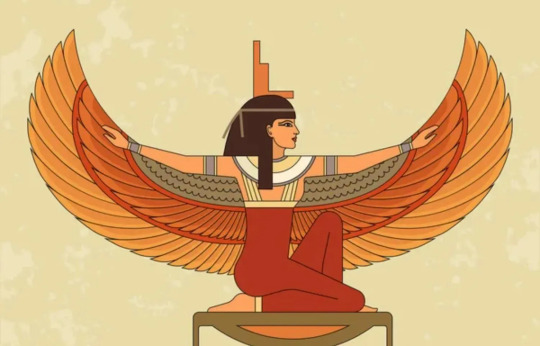
the Egyptian Goddess Isis was the goddess of love, healing, fertility, magic, and the moon. She was the goddess of life and magic, Isis protected women and children and healed the sick.
She was a great magician, whose power transcended that of all other deities.
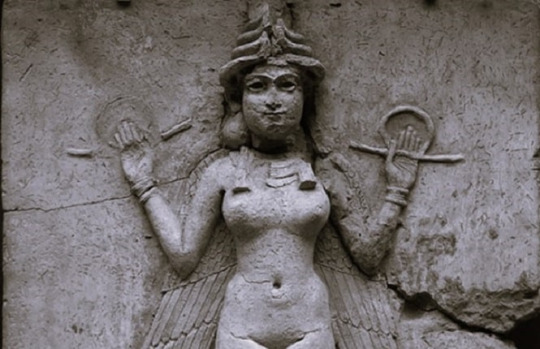
The Mesopotamian Goddess Ishtar is the goddess of love and sexuality, and thus, fertility; she is responsible for all life, but she is never a Mother goddess. She is also the Goddess of War.
I'm using these examples to show that the ancients had a more complex and nuanced understanding of Venusian energy. One cannot worship love without understanding that "war" is a consequence of it. Love & war are not very different from each other. When someone believes in something and is willing to die for it, we find that to be very honourable. Sometimes this belief leads men to kill others over it and depending on the cause, we describe the war as "good" or "bad" (kill a bunch of fascists and then its a "righteous" war, if you kill innocent people, then its an unholy war etc). Being at a state of war describes Venusian nature very well since Venus is also connected to royalty and if you're born into royalty, you get to live a very "exclusive" very privileged life that few get to enjoy but the stakes are also that much higher since you could be beheaded or executed or exiled and live a life that is far worse than the average person.
In this post I want to explore how this "state of war" can manifest internally in an ordinary Venusian and contribute to self harm, eating disorders and drug abuse.

Bella Hadid- Purvaphalguni Moon & Rising
Bella has admitted to smoking since she was a teenager and getting a rhinoplasty at 14. Her pro ana Tumblr from when she was a teen is infamous at this point. She has never openly spoken about it but it is widely speculated that she struggles with an eating disorder and possible drug abuse as well.
“I was the uglier sister. I was the brunette. I wasn't as cool as Gigi, not as outgoing,” she said. “That's really what people said about me.” I also feel like Venusians grow up feeling really ugly and completely unaware of their magnetism. They only really grow into their looks when they're older (obvs there are exceptions) and I think being bullied for what they have and don't have are also big themes.
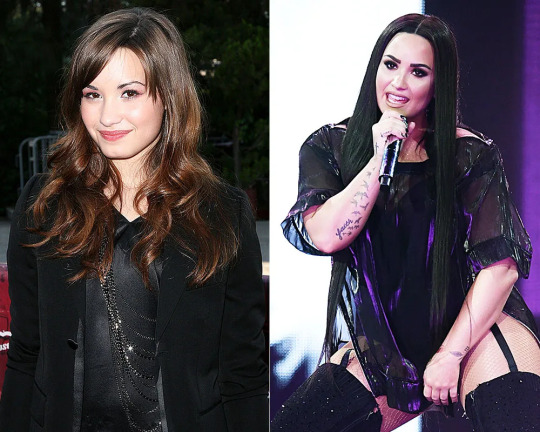
Demi Lovato- Bharani Moon
Demi has spoken about struggling with self harm, eating disorders and drug abuse.
Lovato said, “growing up, I had been bullied in school,” saying she “felt like an outsider," and "like an outcast,” but then she became friends with a girl who was popular. “One day, I asked her ‘how do you have all these friends?,’” Lovato noted, and the girl asked Lovato “do you party?" Lovato explained, "She asked me, 'Do you drink?,'" with Lovato saying that this was her first experience with drugs and alcohol, adding, “we experienced a lot of stuff together, drinking and using, and growing up.” Bharani being an outcaste nakshatra resulted in Demi feeling like one growing one :(((
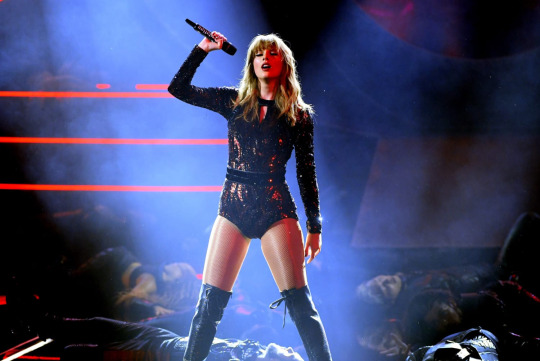
Taylor Swift- Purvashada Rising
Taylor opened up about her eating disorder in her documentary
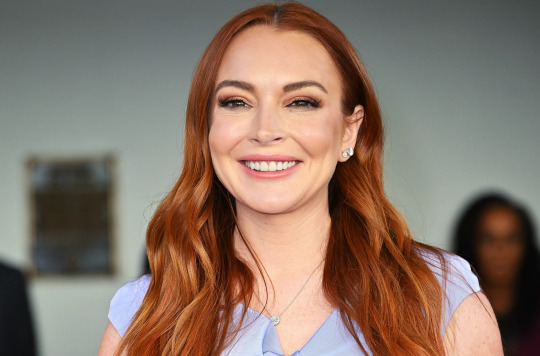
Lindsay Lohan- Bharani Moon
LiLo has struggled with self harm, drug abuse and battled eating disorders
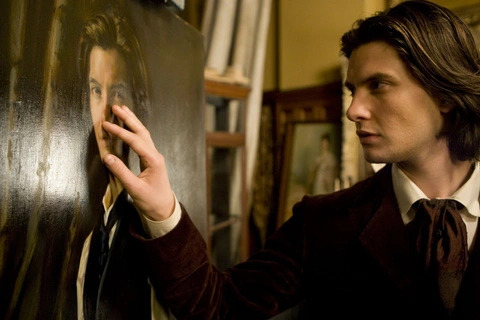
Oscar Wilde, Purvaphalguni Rising wrote The Picture of Dorian Gray
The plot goes like this : An attractive Englishman's image is captured in a painting that keeps him from ageing, when he exchanges his soul for eternal beauty. But for every sin that he commits, his image in the portrait rots.
This is a very deeply Venusian story, and very specifically Purvaphalguni esque because Purvaphalguni is the height of Venus. It can be said that its also true of Venusians in general. They are outwardly splendorous, they seem to have it all together but inwardly they tend to be inflicting wounds upon themselves in order to keep it all together.
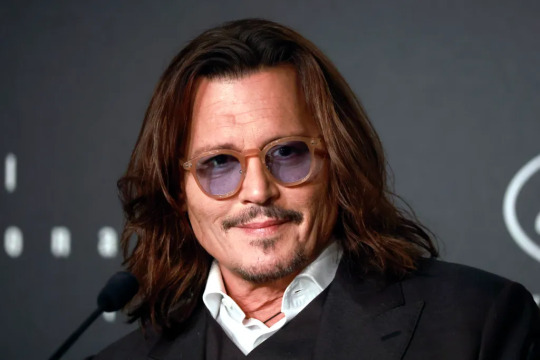
Johnny Depp- Purvashadha Moon
He has also battled eating disorders, self harm and drug abuse.

Iggy Pop- Bharani Moon
"THERE IS EXTREME, there is legendary — and then there is Iggy Pop. Beginning in his earliest days with the Stooges taunting Ann Arbor frat boys and small town Michigan folk, Iggy made an art of excess: self-mutilation, self-exposure and self-destruction. His risky theatricality required an audience to respond, participate or get the heck out of there. And the sex and violence hardly stopped after the show was over."- this is how Rolling Stone described Iggy Pop and tbh this is a very Venusian description
In 1974, at his first solo concert dubbed The Murder of a Virgin. "Do you want to see blood?" Iggy asked the crowd, which howled affirmatively back at him. Then, at Iggy's urging, guitarist Ron Asheton, wearing a Nazi outfit, whipped Iggy repeatedly. Iggy began hurling racial epithets at a black spectator, hoping to goad the man into stabbing him with the steak knife he'd brought onstage. No luck, so he closed the set by carving an X into his chest himself.
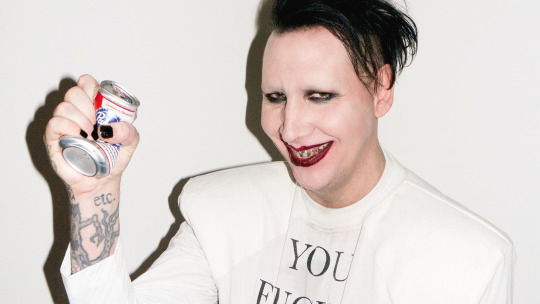
Marilyn Manson- Purvashadha Sun
He has struggled with self harm in the past (there are images online if you're interested) and in 2013, he tried to simulate self harm on stage by holding a knife to his wrist in the middle of a performance??
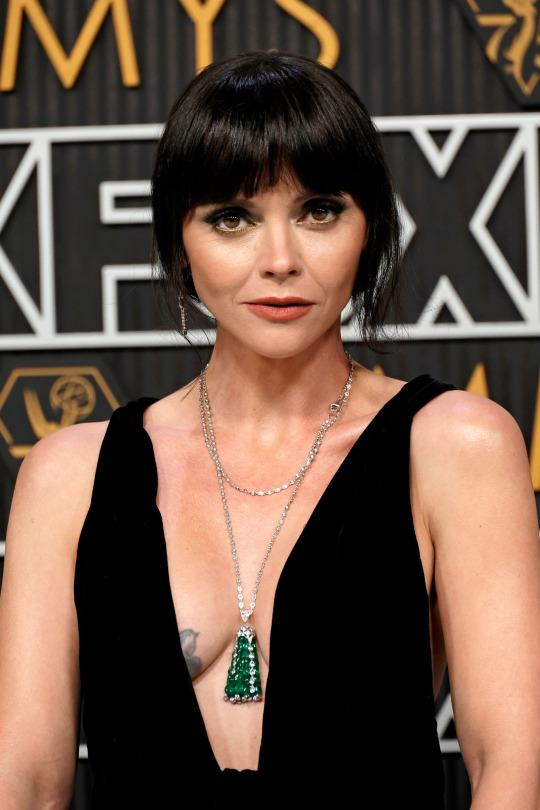
Christina Ricci- Purvashadha Moon
Ricci has said she suffered from anorexia as a teenager and was sexually assaulted as a child. “There was no discussion at that time about trauma, and about recovering from those things, about PTSD,” she said. As a result, she ended up “acting out and coping in ways that weren't good."

Robert Downey Jr- Bharani Moon, Mars in Purvaphalguni
its pretty well known that RDJ was severely addicted to drugs at one point and it started when he was a child and drugs was given to him by his dad:///
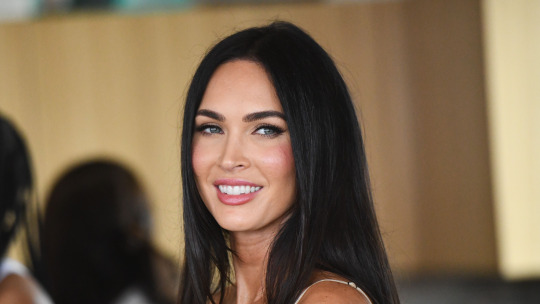
Megan Fox- Purvashadha Rising
"I have body dysmorphia — I don't ever see myself the way other people see me," Fox said. "There's never a point in my life where I loved my body, never, ever." "When I was little, that was an obsession I had of, like, but I should look this way,"
‘However, at a certain point, I went through some trauma in childhood and I developed a pretty severe eating disorder and manic depression, which runs in my family, so there was definitely some wrestling with chemical imbalance going on,’ she shared.
its interesting how so many of these natives begin struggling with these issues very early in life
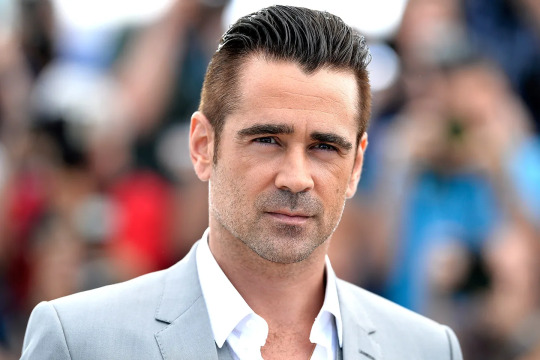
Colin Farrell- Purvashadha Rising, Jupiter conjunct Ketu in Bharani
While he did not say that he had cut himself when he was younger, Colin Farrell had some self-inflicting behavior during his younger days. He spoke on The Tonight Show with Jay Leno and said that he used to actually enjoy pulling out huge tufts of his hair.

Pete Davidson- Purvaashadha Rising
'I used to bang my head against walls,' he admitted. 'If I couldn't deal with something -- if someone told me something sad or something I couldn't deal with I would bang my head against the wall, hoping I'd pass out because I didn't want to be in that situation because I couldn't handle that.

Melanie Lynskey- Bharani Moon
“I stopped throwing up, mostly. It took a while. But that was a big one. I had, for a very long time, been on this diet that was basically 800 calories a day, and if I ate anything over 800 calories, I would throw up,” she said. “I was never bingey. Sometimes I’d be starving, and I’d have another teacup of Special K. Then I’d be like, ‘Well, now I gotta throw it up.’”
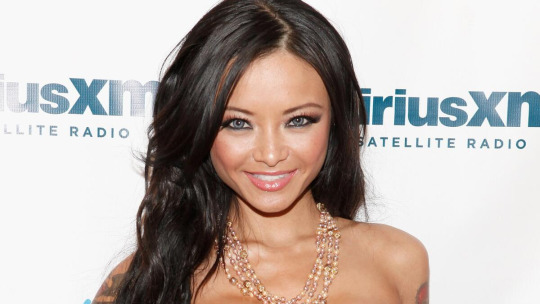
Tila Tequila- Purvaphalguni Moon
On March 7, 2012, it was reported that Tequila had agreed to check into rehab after having reportedly "almost died" from an attempted suicide by overdosing on pills. The incident caused her to be hospitalized for a brain aneurysm. Tequila completed her rehab treatment on April 5, 2012.
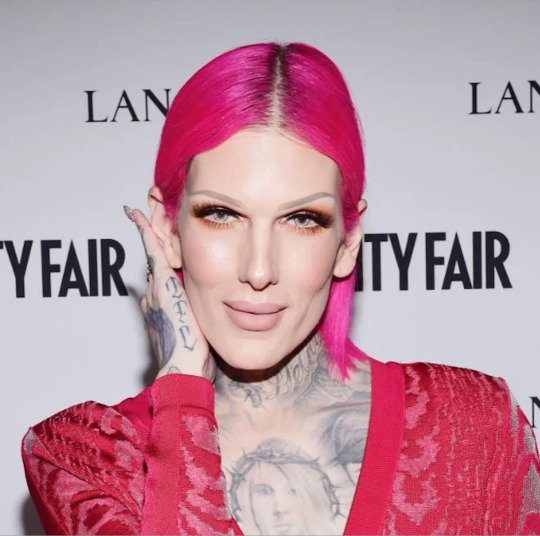
Jeffree Star- Purvashadha Moon
images of him self harming once went viral
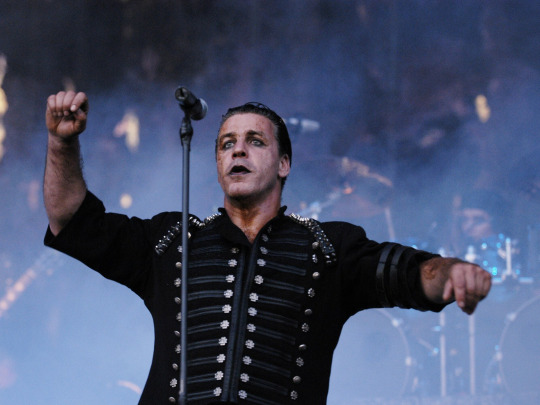
Till Lindemann- Purvashadha Sun
he's known for his SH scars and has even written poems about it in German??? its called "The poems: Knives on silent nights"

Portia de Rossi- Rahu in Purvashadha 2h
she's struggled with an eating disorder
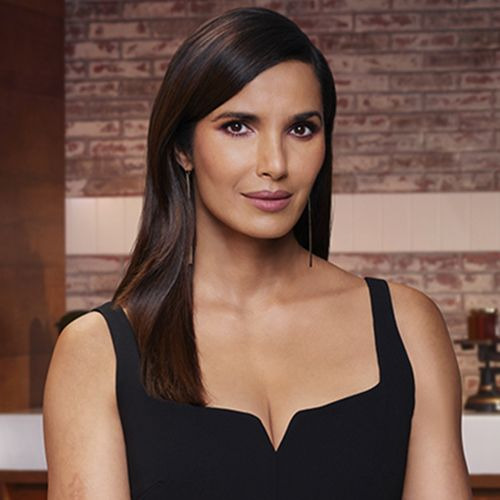
Padma Lakshmi- Purvaphalguni Sun & Moon
"When filming "Top Chef," I consume about 5,000 to 8,000 calories a day,'' she wrote. "I typically gain anywhere from 10 to 17 pounds every season. Once I get home, what's taken me six weeks to gain takes me 12 weeks to take off. It's always a nail-biting extravaganza at fittings, praying that a few pretty dresses that came down the runway on a teenage model who is a size 0 will miraculously fit my 40-something body,'' she wrote. "Getting ready for the Emmys is always fun, and it's truly an honor to be nominated. But at the same time, in spite of my high metabolism, I worry each year that I'm not going to fit into anything nice. So, this year, I've decided my weight will not be my focus,'' she wrote. "If I need a bigger dress, so be it. That one day — or any day — on the red carpet isn't nearly as important as making sure my daughter doesn't measure her worth by her dress size."
i guess this is a more positive manifestation of Venusian self image struggles

Jessica Alba- Bharani Stellium (Sun, Mercury & Venus)
“I was meant to feel ashamed if I tempted men,” she said. “Then I stopped eating a lot when I became an actress. I made myself look more like a boy so I wouldn’t get as much attention.”

Katie Couric- Purvashadha Sun
“I wrestled with bulimia all through college and for two years after that,” she shared with Lovato while interviewing her, per Glamour. “I know this rigidity, this feeling that if you eat one thing that’s wrong, you’re full of self-loathing and then you punish yourself, whether it’s one cookie or a stick of gum that isn’t sugarless, that I would sometimes beat myself up for that. How do you have a healthy relationship with food, and say, ‘You know what, I can have one cookie and it’s OK?’ That is such a huge thing for people who wrestle with this.”
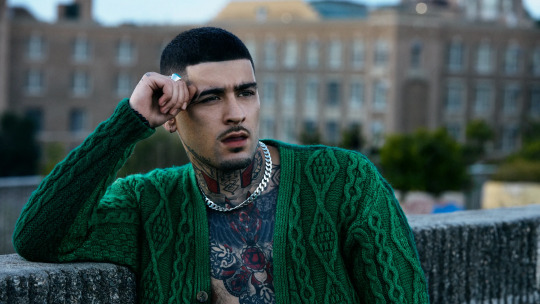
Zayn Mailk- Purvaphalguni Moon
In his 2016 autobiography, Zayn, he shared it would sometimes cause him to go two or three days without eating a single bite of food. “Something I’ve never talked about in public before, but which I have come to terms with since leaving the band, is that I was suffering from an eating disorder. It got quite serious, although at the time I didn’t recognize it for what it was,” he wrote. “When I look back at images of myself—before the final tour—I can see how ill I was. The workload and the pace of life on the road put together with the pressures and strains of everything going on within the band had badly affected my eating habits. Food was something I could control, so I did.”

Zoe Kravitz- Purvaphalguni Moon conjunct Ketu
“I think it was part of being a woman, and being surrounded by [fame],” she said. “I think it was definitely about being around that world, seeing that world. I felt pressured.” After playing an anorexic character in a movie, she hit her lowest of lows and was so malnourished that her immune system shut down. Months later, she decided to make a change. “I just felt it was different,” she said. “I don’t know… if a f—king spirit came over me and said: ‘You have to stop.’”
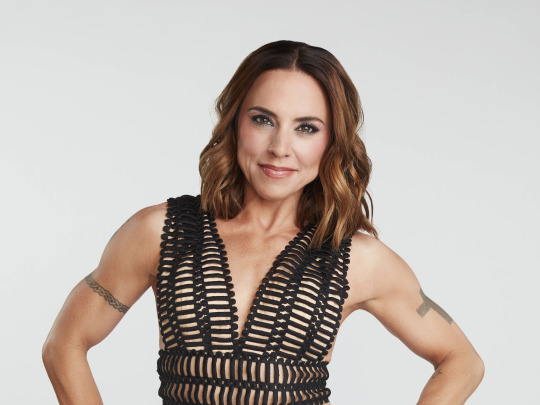
Mel C, Purvaphalguni Rising
"When I was in the Spice Girls, the stress of suddenly being thrust into the limelight led me into an unhealthy relationship with food and exercise,” she told The Mirror in 2012. “I became obsessed about what I ate and I cut lots of food groups, like carbs and protein, out of my diet. I survived on fruit and vegetables and little else.”

Nicole Scherzinger- Mars conjunct Rising in Purvaphalguni
"I really struggled with feeling like I fit in. I even had a hard time feeling like I fit into my own skin. I was really hard on myself and had a lot of struggles with self-esteem and a lot of insecurities,” she said. “Later on, that resulted in me having eating disorders because of my body dysmorphia.”
if you're reading this and struggling, you're not alone. please get help!! its not too late to turn things around!! youre so strong and you can do this!!
#venus#purvaphalguni#bharani#purvashadha#astrology notes#vedic astro notes#astrology observations#nakshatras#sidereal astrology#astrology#astro notes#astro observations#vedic astrology#astroblr
272 notes
·
View notes
Text
Why Jason and Bruce Will Never See Eye to Eye

At least, when it comes to Gotham.
The short answer: Because they each see Gotham through a different lens.
I thought about this after I read Absolute Batman #4 and how that universe's Batman is almost a fusion of Bruce and Jason. Absolute Bruce is an AU version that has the love and support from Thomas and Martha, the childhood tragedy of loss, and also the lived experience of being raised in Park Row without loads of wealth, but still chose to become Batman.

But going back to Prime Earth/canon Bruce and Jason...
For Bruce, it's one alley, one night, and one tragedy that set him on a course to becoming Batman. Of course, throughout the years he's learned more, grown, and understands the nuances of crime and corruption in Gotham, but it's still an outsider's view. He can have empathy and a desire for justice, but at the end of the day, the world he knows is Wayne Manor, his loving childhood with Thomas and Martha, the Batcave, fancy galas, corporate buildings, and near limitless wealth. Yes, he has slummed it as Matches Malone and has studied crime and how socio-economic poverty can lead to crime, but it's all cerebral and it's not Bruce's lived experience.
If anything, Matches is a perfect example of this. Just as rich, playboy, devil-may-care Bruce Wayne is a mask, so is Matches. It's a pretend, make believe persona he can put on and then take off once he's back home. Yes, he has a mission, an oath, etc. and he's fully dedicated to it, but at the end of the day there's still a hot meal from Alfred and a comfy bed with Egyptian cotton sheets waiting for him when it's all over.

For Jason, it's more than just one alley and one bad day. Patrols as Robin were probably a constant reminder of the all the things he had seen and experienced as a child. That alley over there is where he saw his first dead body, long before Robin was even an idea in his mind. Another alley is where he first saw someone having sex before he understood what sex was. That apartment complex is where Catherine OD'd that one time and the complex next to it is where his friend's older brother got shot in a gang-related shooting. He knows most of the names of the different people on the street corners, just trying to get by, as well as their violent pimps he knew to avoid. One of the girls once shared half a sandwich with him back when he was orphaned and on the streets. Her pimp said she was getting fat, but in reality she was starving and malnourished, but she took pity on Jason because she had been friends with Willis. And the list of memories goes on.
Yes, little Jason was a "good kid", and I have a rant for that, but those memories while on patrol probably gave him pause because that was his world and his history. Whereas, for Bruce, it was part of his job. He may know the names and the stories, but they're a step removed from Bruce and Batman.
Flash forward to teen Jason, the "angry" Robin who might've thrown a guy off a balcony. That little boy who lucked into the orphan Annie Cinderella story is now a bit more aware of the world and it's injustices, despite having a cape. Now, he sees those familiar places, but the dead body in the alley is one of his childhood friends that he used to play basketball with and who'd geek out with him over their favorite Saturday morning cartoon. The girl on the corner, slightly strung out and looking for her next John? That was his teen babysitter from down the hall. She used to watch MTV religiously and go on about that one guy from her favorite boy band, certain that she'd marry that guy someday because she had a collage of him on her wall. That dead-eyed man who appears to have just OD'ed in the empty apartment Robin and Batman are searching in for clues as to Sacrecrow's location? Jason's favorite English teacher who told him that reading wasn't girly and that he could read whatever seemed interesting to him. And the memories go on.

Task Force Z, Issue #6
That little boy, adopted by Bruce Wayne, was probably extremely grateful and often quietly anxious. Probably constantly afraid that he'd mess up and lose that golden ticket he'd found. So he did everything he could to be perfect; straight A's in school and perfect Robin flips just like Dick. But teen Jason started to see the reality of the world, like most teenagers do, and things changed. Things that Bruce could never understand.
I imagine Jason often asks himself the question, "Why me?" Why was he the lucky one and they weren't. Other than amusing Batman by stealing his tires and being another random orphan within Bruce's orbit, nothing about Jason ever said he deserved the brass ring more than anyone else. He just got lucky, then he died... and then came back.
If anything, Jason and Selina Kyle probably relate to each other the most. They know those dark, "scary" parts of Gotham and they not only see the scars, but they feel them because they share those scars with Gotham.
And that's why Jason and Bruce will never see eye to eye, especially when it comes to Gotham. It isn't the same for them, and it never will be.
63 notes
·
View notes
Text
Hush Hush Honey:
A guide on how to regulate oversharing and balancing the conversation flow.
Each one of us has at least been in a situation where we accidentally ended up spilling more than we should. We do recognise the patterns but are unable to control ourselves. That's why your girl Ash-says is here to say a lot about it.
1) Find the why
What are you trying to achieve by sharing that piece of information? Drama? Attention? Get it off your chest? Is it important to inform them? Is it valuable to them?etc.
First tackle the why. Before you go in to reveal something ask yourself if it goes with the conversation flow and if yes is it really important to share it.
2) Are you a celebrity?
No like why? Who is interested in your life so much? Are those people paparazzi to broadcast your current events and bring you fame? No right. So shut up.
3) Who puts their dirty laundry on display?
When you overshare you are basically putting all your secrets, stuff that you do or did on blatant exposure. People are going to judge you. That's the very nature. So breathe and keep it inside.
4) Try to listen more
Train yourself into listening more than speaking especially in group settings or around people that you don't know much about. Gossip is real. You don't want to be the next tea time sensation.
5) Alternatives for talkative people:
Now I know you might be thinking can't say this can't say that then how the hell am I going to bond with people or what should I converse about?
I have developed a solution for you. It's Ash verified because I myself have been using it unknowingly for around 7 years of my life.
Never open your mouth for passing judgements, expressing your opinions on things that do not relate to you, your dirty laundry, secrets, family issues, relationship issues, your sex life, your goals and aspirations, your daily routine, your political standpoint,etc you get where I am going right?
Instead speak about the experiences you had while travelling somewhere, some goofy stuff that happened to you, your harmless vice for example: I am clumsy so I have a lot of incidents that occur due to it which can be told in a funny way. It adds a nuance to my perfectionist image plus helps people warm up to me. Movie shows, songs, etc here also there's a catch if you relate to a show/song/ piece of literature strongly never reveal it. The smart ones will understand the inner workings of your mind.
Never let them know your next move.
If nothing of this then goof around being nonsense. Do little hand gestures, funny faces if you are bored but never overshare.
6) Be mindful of interruption
Practise practise practise. Literally that's the only way. Try not to interrupt people while speaking. There's no roundabout way. It is what it is.
7) Be comfortable in silence
You have to be okay with the conversation dying down. Running your mouth dry will only result in one sided convo. It's more useless and harmful than the one mentioned before.
8) Know your limits
Fix in your brain what you can share and what you can't. Stick to it. Even over your dead body.
9) Be genuinely interested in people
Ask yourself are you asking questions to really get to know the other person or just looking for a chance to talk about yourself? Dethrone yourself first and then interact with others.
10) Put out stuff that you are over with
Always remember what you say can and will be used against you. Drill it and from next time when you speak be mindful that every word can stand against you. Do you have the capacity to handle the consequences? Yes then go ahead. No, then stop live streaming.
Bonus point: Be as private as possible on social media. People don't need to know what you are doing nowadays. Privacy is power. What they don't know they can't ruin.
Strategically put things out. I am not saying be inactive. In Rome you live like the Romans. Do it smartly.
That's all for today's show on ash-says. Stay tuned for more illegal tricks and explosive opinions.
#girlblogging#glow up#it girl#self care#that girl#gaslight gatekeep girlboss#self love#becoming that girl#dark feminine energy#becoming her#wellness#advice#motivation#self development#self help#self improvement#dream girl aesthetic#dream girl#it girl aesthetic#pink pilates girl#pink pilates princess#coquette#ash-says#femme fatale vibes#femme fatale#feminine energy#level up journey#level up tips#thewizardliz#wonyoungism
151 notes
·
View notes
Text
Re: the whole Si Spurrier Bi/Pan Johnstantine debacle thing
For context, Spurrier (the writer of the current Hellblazer run) explicitly had John self identify as pansexual in narration despite John being canonically bisexual. The cover of the issue (I believe this was the artist's intention, but can't confirm) also evoked the bi flag colors in its colorscheme. When asked about this on twidder, Spurrier doubled down (paraphrasing: "John shouldn't have any queer label, he's bad representation"), deleted tweets, and just left fans in a mess.
My tldr take: John Constantine is bisexual. Spurrier didn't and doesn't know the difference between bi and pan, mixed them up and spouted respectability nonsense to cover himself. He's an old man who doesn't fyuck with gay people, simply. I don't think he has deep seated hatred for the bi community or anything. He made a mistake (still a bad one) and didn't apologize for it. Shame this is the author spearheading such a prominent queer character.
The long take:
I see a lot of people bringing up modern media that reaffirms John's bisexuality but I believe it's important to look at the historical context.

John Constantine in his original Vertigo Hellblazer run was an inherently counter-culture character. A working class guy growing up in the punk scene, aligning himself with queer people, explicitly ACAB, a rebuttal to the classic Superhero tropes, etc. It's only fitting that Constantine's bisexuality was revealed in a similarly counter-culture manner. Under guest writer John Smith (and artist Sean Phillips and colorist Tom Zuiko), John just casually mentions having "the odd boyfriend" in passing narration about his struggles with commitment. This may not seem like a big deal with today's standards, but it's important to recognize that this issue came out in 1992. Hellblazer already had a handful of queer characters at this point and suddenly after years of queer coding, the main character just reveals his bisexuality in passing.

So that's the historical context in our comics world, how about within the canon of Hellblazer? Well, John was born in 1953 in Liverpool, meaning he was a teen in the 60s, formed and toured with Mucous Membrane all over the UK but mostly London during the 70s (as a young man in his 20s). When we cross reference that with what's going on in the UK queer scene at this time, it's no wonder why John is presumed to be bisexual.

[From Stonewall UK]
In the same article, Stonewall mentions that the term "pansexual" became popular in the 90s. While this aligns with when issue #51 reveals Constantine's "odd boyfriend" comment, it's clear that the term "bisexual" would be the term Constantine grew up with during his formative years. While this distinction might seem unnecessary or even arbitrary to some people, these identities do matter in their nuance and historical context. Identities and histories are not interchangeable after all. With all this context in mind, to me, John Constantine will always be bisexual.
To Spurrier's comment on "John Constantine shouldn't have any label anyway, he's bad representation/role model for any identity" (paraphrasing, I know he probably said this in a defensive moment since if he truly believed this then he wouldn't have explicitly had Constantine refer to himself as pansexual in Dead in America #7), I think using respectability in defense of a character as counter-culture as Constantine is a demonstrable example of Missing The Dang Point.

[from Nerdist article written by Jules Greene]
Spurrier, the gays like John Constantine especially in his og Hellblazer run because he wasn't a walking Pride ad. We like that he's a mess. We like that he's working class. We like that he's messed up and painfully human. If you don't understand that about Constantine, then you fundamentally misunderstand why people find him so appealing to begin with.
#ramblings#jesncin dc meta#sorry lots of hellblazer talking lately but this has been on my mind for a while#and obviously matters a lot to me so A Mini Essay Happened
72 notes
·
View notes
Note
Hot take incoming.
People who have been traumatized or otherwise harmed by certain people (predators, etc) have every right to be upset about it, and angry, and scared about whether other people will experience the same thing. They also have a right to process their trauma in their own time, because everyone is different. It is also understandable that some people might not have access to a way to process that trauma. Lastly, obviously, people with trauma totally deserve to be included in fandom spaces as much as someone who doesn't have trauma.
However… I feel like there is a line that shouldn't be crossed when engaging in certain discourse in fandom, and outside of fandom. If someone has lots of unresolved, unprocessed trauma, and because of it, they can't be (sufficiently) objective, or look at things in a more unbiased manner, they should not be engaging in discourse about things like censorship too heavily—if at all. They need to postpone that until their mental health is a bit better.
Unresolved trauma can make it really hard to properly acknowledge nuance. For example, if someone's parents grabbed them, beat them, withheld food, opened locked doors on them, et al, yes, they're going to have trauma. But the question remains whether they can view something like a fictional dynamic where, for instance, someone makes amends with their parents who abused them due to mental illness, which has since been treated, with ample objectivity. Or any other, even darker topics, especially ones where toxic relationships and events are written to be erotic). It really feels like many people in fandom don't recognize they might be too biased to read something without viscerally (viscerally!) reacting, and throwing down the "ban it" card. I get the impression it's not really healthy for the individual a lot of times, too.
I've reblogged posts about why it's bad to censor sensitive topics in fandom, and I've posted some of my own commentary, which tends to be very clinical. I've had multiple strangers, at these times, create full-on essays in my inbox where, after mentioning how I seemed like a safe space, they described how they were groomed and abused by someone, and all sorts of stuff that I didn't want to read. While it was very sympathetic, they argued that x things should be censored, and nobody should be allowed to write toxic relationships, because they "knew just how bad that trauma could be," and they implored me to believe them. But even if they do have firsthand experience with that trauma, and they feel so strongly about it, does that really make their argument any more logical?
I'm convinced these people still had unprocessed trauma, so they were acting with their feelings, not their brain. I got this impression from how they completely trauma-dumped on me - I kid you not, it felt like they had to get this stuff out somehow, because they hadn't been given enough opportunity to vent before. One of these people who were in my inbox? They legitimately seemed desperate to get me to accept what they were saying. Now, it could've been a bucket of fake bullshit. But if it was real, I have to wonder how much of the incessant campaigning for censorship is actually a misguided way for people to manage and make sense of trauma, to validate it somehow, and feel like they're getting control over a situation, even if they don't realize that's what they're trying to do.
Not to claim people shouldn't be allowed to speak their minds. But, there's nuance. I feel like a lot of people in fandom need to wrap their heads around the fact that there is a large difference between being informed by trauma, and letting trauma speak for you. And the latter can often lead to bad outcomes.
--
86 notes
·
View notes
Text
I think the thing that bothers me the most about the semi-popular fandom idea that Ed and Izzy ever had a romantic/sexual relationship or that it's accurate to describe the dynamic as Stede being a "homewrecker" in their relationshihp is how these ideas deny Ed so much agency.
For me, the most interesting thing about Ed and Izzy's relationship is they fundamentally do not understand each other, even down to how they would describe their relationships with each other. For Izzy? Yeah, I'm sure he does see himself as a jilted spouse. There's no doubt he's attracted to Blackbeard (not Ed, as much), but honestly during s1 I don't think you could waterboard that out of him. Izzy has a very specific idea of how Ed should behave, and often dehumanizes him as a result - he doesn't see Stede as a romantic rival, he sees him as someone who is poisoning Ed and "making" him behave in ways that Izzy doesn't feel are appropriate (singing, painting his nails, being vulnerable in front of the crew, etc.).
But for Ed, it's very much more like "this guy reminds me a lot of my father and other controlling male figures in my life, I need to keep him around because he's predictable to me, and I'm sure I don't need to unpack that." Ed's attempts to connect with Izzy on a personal level (showing him trinkets he finds interesting, talking about things that interest him, etc.) are constantly rebuked if he's not acting Blackbeard-y enough. Izzy caressing Ed's face and looking at his lips after threatening him and goading him to react with violence in s1e10 makes Ed extremely visibly uncomfortable. When Izzy confesses his ""love"" for Ed in s2, Ed responds with absolute confusion (if you tell someone you love them and they bluescreen and then say "oh come onnnn," like, I'm sorry, but they don't feel the same way, dude).
Their relationship is very complicated and nuanced and it is delicous to dig into. But these two people do not understand each other at all. Izzy (at least in s1-early s2) thinks he and Blackbeard have this intense deep warrior's bond and understanding that goes beyond words, and for Ed Izzy is this guy whose behavior is very controlling, who isolates him and insults him, but who he still often feels like he needs to have in his life on some level (another way Izzy is such a powerful representation of the Blackbeard persona).
I just don't think there's any way Ed has ever seen Izzy in even a vaguely romantic way. He responds with nothing but confusion and discomfort when Izzy behaves towards him romantically, and he only says "I loved you, best I could," right after he thinks Izzy's shot himself, right after he put that gun in Izzy's hand and asked him to kill Ed (to finish the job Izzy started when he told Ed he was better off dead than being Ed), right after Izzy mocked him for being too scared to kill himself - Ed and Izzy are deeply, fundamentally incompatible people, and that's exactly why their dynamic is so interesting!
194 notes
·
View notes
Note
Hello, I’ve got a long winded request for advise that I’d like to ask from you (if you’ll give me a year in advance to ramble lol).
Would just like to state first off that this was something I spent half an hour on cycling between the thoughts of “this is horribly offensive” and “who better to ask” due to some of your posts and because I commonly enjoy and trust your opinions to be at least honest. I know you aren’t obligated to answer this ask but I’d really appreciate it even if it’s simply just a “AITA?” “YTH” situation.
I’ve had an issue recently where I am being ridiculed for making choices for my body and its appearance. The choice is losing weight. I’ve lived my entire life so far as a fat person, for the last 13 or so years I was well above the “class 3 obesity” threshold, right now I’m sitting in the low end of the first class. I don’t really like it, but when I was in the overweight category (I haven’t been an average weight since I was 5, a little more on that later) I got told that by losing weight I was being inherently fatphobic and making other fat people uncomfortable.
I know dieting and the likes can be an uncomfortable topic in general but I never brought it up except for rare mentions of my weight loss, mostly because I was proud of my progress. I’m not wanting to be “thin, “skinny,” whatever etc etc, I would just like to be in the middle of the average category with some visible muscle mass. I was shamed so much that I put myself back up into the obese category, and I’m all for body positivity but it’s not working for me when I know what I want my body to look like. I’m neutral on my body and its functions in general but I’m uncomfortable with the gain I didn’t want and the knowledge that I was on my way to a point of comfort.
As I said before, I haven’t been an average weight since I was 5. That’s because I developed severe binge eating disorder due to trauma. My weight gain was uncontrollable and made me uncomfortable for over a decade. Now that I have some control and a sense of body neutrality, I would like to lose what I gained from my disorder. Not all of it ofc, I’m an adult now and I want a healthy adult body, but I want to be able to make the choices and changes to put my body back into the average weight that I feel was “stolen” from me.
I suppose those thoughts could be considered fatphobic from a certain viewpoint but to me my binge eating disorder and obesity are/were things that I feel the need to heal from. I don’t have these thoughts about anyone else. I don’t want anyone to lose weight if they don’t want to. I love fat bodies. I just want to have the choice to lose weight myself without being considered a bad person.
Do these thoughts and feelings make me a bad/fatphobic person? Does losing weight make me a bad/fatphobic person? I genuinely just want what I believe is best for my body.
Thank you for your time. Stay well.
i have a lot of feelings on this sort of topic, so i appreciate you sending an ask like this, because it's one of the most nuanced, complicated discussions i've tried to have with people recently and a lot of people do not understand the distinction. i'm going to try to break this down to have it make sense to as many people as possible
first of all, people have the right to choose what weight they want their body to be at, so long as it's not causing genuine harm, especially permanent harm. losing weight is not inherently evil, the thing is, a lot of people either need to lose weight or choose to do so for good reasons. i was very heavy at one point, 360 lbs, and i was starting to get new pain i hadn't experienced before. it was hard to stand for any period of time. i couldn't walk much.
after i started walking around the neighborhood and losing that extra weight, that pain went away. i feel a lot better having less of that weight on me. i gained weight in a very unhealthy manner during this time, mostly by not eating well for my dietary needs, sleeping excessively, no exercise, and so on. the thing is that we have to take care of our total health and not everyone who is fat is unhealthy, but some people can and do put on weight that impairs their functioning or health and it's not good to ignore that this is a thing that can and does happen
you're allowed to decide what you feel your body should look like especially if you are not taking this to extremes. i like to keep my weight below a certain range, myself. i keep a close eye on it. fortunately it's easy to stay around a certain healthy range for my body because i cook a lot of meals at home and i mostly eat vegetarian food and fish due to allergies and digestive issues. i'm still about 311 lbs but it's in a much healthier configuration for my body
weight is a complex conversation. both thin and fat bodies are stigmatized. we need to drop our obsession with body image and let people be the arbiters of their own weight, at least, letting people express what they want and helping them reduce harm and find ways to achieve that goal realistically in a healthy manner. shaming people doesn't work. we've proven this decade after decade. shaming skinny people doesn't work. shaming fat people doesn't work. shaming anyone doesn't work
dieting is a very specific thing. everyone's diet is 100% unique to their body. your digestive system works different than the person next to you's. you may not metabolize nutrients as well as someone else. you may process fats and proteins differently. you may need a lot of electrolytes. you may not be able to digest fiber. you may struggle with fructose, glucose and other sugars. you may not be able to eat any meats at all. you may need lots of fruits. it will depend greatly on who you are
it's best to work with your body than against it. you are allowed to decide what weight range you want to be within. best thing you can do is attempt an elimination diet to see if there are foods that just don't do your body any favors, these can and should be done very slowly with one food at a time. but i'm not a health professional, so that's just a suggestion.
either way good luck, i don't like when people try to boil this down to "this is good" or "This is bad". there are good and bad things to all of this. it's worth discussing both sides of that. i hope this helped you in any way
47 notes
·
View notes
Note
Hey, so you said in your tags about how katsuki is a freak in his own way, could you please expand on this idea a little and when it comes to Izuku?
Sure!
I actually made a post about this very concept semi recently but that post also didn’t really have organization lmao
The main reason I’ve always thought Katsuki as “a freak” as I dub him is for the very foundations of his personality. I think the main reason why no one in the western fandom looks at him and sees him for his (kinda) socially inept aspects is because of a combination between cultural differences and the nuances that hero society throws into Japan specifically.
It’s well known that Horikoshi’s story/world is heavily influenced by American super hero comics. Superman, Spider-Man, Harley, Poison Ivy, Bat-man, Captain America, ant man, etc. are all very obvious influences throughout the story, with characters like Allmight often feeling like a combination of Superman and Captain America.
The reason I bring this up is because the very aspects of these super hero comics is kind of in direct contradiction with Japanese society, especially as those heroics within the world affect the society around them.
Heroes are this curve ball thrown into a society that teaches its citizens to be polite, complicit, and quiet. That’s not to say that this is necessarily a “wrong” way to have a society, but I think it’s with this context that Katsuki’s character (and therefore the intentions behind it) become clearer.
Heroes are bright, loud, and powerful. But long before Katsuki was a hero he already was these things; how does that affect his social life? How do the people around him treat him in the context that he is both not a hero nor having of a quirk? If heroes are the “exceptions” to the society around them, and Katsuki is not yet an exception, then he is an outcast, right?
It’s this context that I feel most people forget. Katsuki understands the people around him, he’s very observant and nosy, but he also just doesn’t care. He is unabashedly himself at all times. Those jokes Aizawa made about keeping him out of the spotlight showcase this perfectly, Japanese society expects a certain standard for the social context around him—which he actively ignores.
It’s a very ironic aspect to his character given that most people admire and/or envy him. It puts a whole new light on izuku saying that he was the one “actually in his life”, that Izuku may have admired him before his quirk for simply being himself. Not to mention how it makes sense that he would believe izuku was looking down on him for admiring him before his quirk, because Katsuki was bullied! I think that’s an often overlooked detail given that he only became “acceptable” to most kids around him when he gained his quirk. The memory this is showcased in is entirely Izuku’s pov, which is heavily biased in the sense that he admired Katsuki. Getting jumped by kids two years older than you though is so weird, and I can’t help but wonder if the perspective might’ve changed were it in Katsuki’s pov.
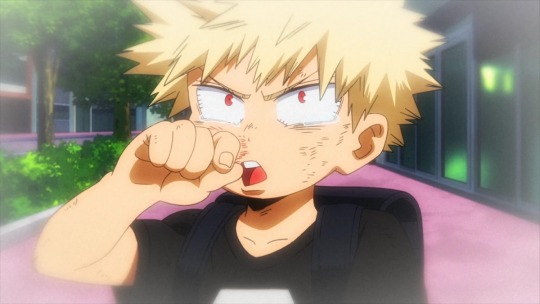
To me, the idea that Izuku’s memories of Katsuki being this social god come from blind childlike envy and admiration, especially as the contextual things happening (Katsuki is a REALLY big hero fan, he’s rude, he doesn’t remember people’s names, actively terrible at making friends at UA for a good couple weeks, getting bullied to even a minimal extent) in comparison to the words being told. You are told by Izuku that Katsuki is amazing, brilliant, talented, energetic, crass, and in reality (especially when they enter UA), to most people Katsuki is annoying, loud, mean, a little intimidating, and not nearly as cool as he thinks he is. His friends spend the entirety of the beginning of their first year actively making fun of him for thinking he’s tough shit when he so obviously isn’t.
And I think the biggest most important part to this “Katsuki is a bit of a social outcast” discussion, is that the villains thought he was like them! They thought he would hurt people because he screamed “die” and didn’t like winning when he felt he didn’t earn it.
The only reason Katsuki is not as much of an outcast as, say, Izuku, is simply because he won the lottery. He earned that extra point. He caught that curve ball to Japanese society and honed it into something greater.
And, see, Izuku can’t really know/comprehend that Katsuki would be, I don’t know, unpopular to any extent (shown in the beginning of the series when he’s freaking out on the bus that HES being complimented and Katsuki is being insulted), because to him Katsuki always acted like a hero. And in a way, he does! But it’s in the way that hero society throws that curve ball, contradictory to social norms, and of course it makes sense why they still happened at all; the past was dangerous! It was life changing! Disparity and violence and death, desperation fueled this huge monumental change. And what is izuku “I don’t know how to make people like me” Midoriya going to do when this kid, Bakugou Katsuki, acts like one of the heroes on TV? He’s not gonna call the Geneva convention and ask why the hell this child isn’t acting like a normal citizen—he’ll admire him to such a visceral degree because it’s almost like he was born a hero.
I like the concept that, because heroes and villain are cut from the same cloth, relatively similar in concept and strength and past hurts in their history, that this also affects how they are socially. You are outcasted by society: you want to oppose societal norms to live freely as yourself and others as theirselves, you want to make sure everyone can smile at the end of the day because sometimes you or your parents couldn’t, you want to be the best because someone told you that you couldn’t, you want to be just like the hero on your TV, who inspired the hero in your life.
Also you need to be at least a little bit of a freak to be listening in on people’s business all the time because it involves your childhood friend/rival to literally any degree. Like bro what is wrong with you come HERE BBG LET ME PICK YOUR BRAIN APART PIECE BY PIECE
More side note: idfk where I got the Geneva convention thing. I was just thinking about how mha has genuinely had violations against the Geneva convention
#bkdk#I think this is a fair ask but I will say#out of the four of them Katsuki is certainly the most normal. you’d think that would be ochako but she has a thing for men getting their-#shit beat and still standing up anyway. what is wrong with you girl I love you#midoriya izuku#bakudeku#bakugou katsuki#mha analysis
85 notes
·
View notes
Note
im a system trying to learn more about endos.
so far in syscourse ive only seen proof of cdds being traumagenic but they dont disprove non-cdd plurality, so what sources are there that have evidence of endogenic systems, if you have any?
Right now? There isn't any hard evidence that would satisfy anti endos. There's TONS of papers and articles talking about the recent emergence of endogenic systems, but they're mostly interview based. I debunked a lot of them when I was still anti. Small sample sizes, personal bias about dysfunction levels, all interviews. Those won't stand for those who are skeptical.
Now that I've calmed my gender neutral tits, though, I can look at where all this research is heading, and I can look back and find all the different terms that have been used to describe this same phenomenon. Those terms don't fall under psychology, they appear in journals about consciousness and self and philosophy, and they go all the way back to the 1800s, developing right alongside theories on hysteria and split personality, and the TOSD.
I don't need to do the work for you (/nm), just Google multiple self theory and fall down the rabbit hole. Trust me. One Google search, move at your own pace. It'll mean more when you find all this yourself and make the journey on your own. It was way more effective when I went alone.
That said, I'm not heartless.
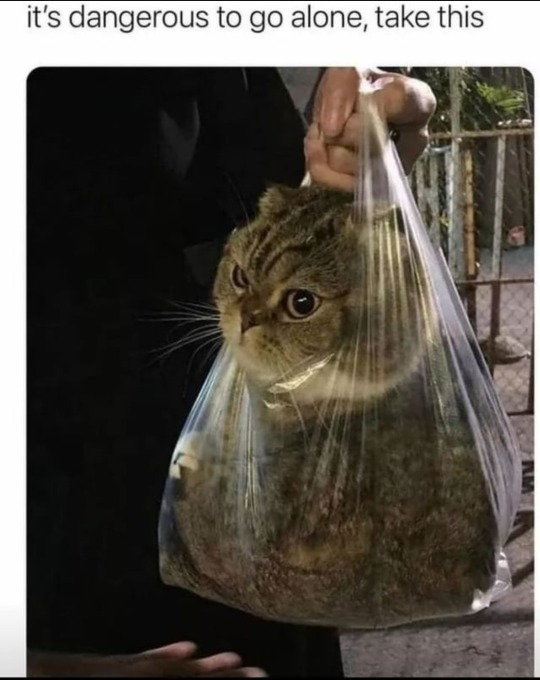
The most promising research coming out is the tulpa studies.
Tanya Luhrmann and Michael Lifshitz are incredible, but it's Luhrmann who really stole my heart. She has a long list of work on religious communication with God and "others", and was a huge part of putting tulpas, and several other different voice hearing, religious communities into the fmri scanners to see what's going on. The reddit AMA is being passed around now, and it's largely being ignored by antis, without understanding what it was.
The tulpa studies began... shit, 5 years ago? Covid put a hold on the project, but it's back up and running and they're working on the final paper. The AMA was a chance for people to ask questions to the lead researchers about the project, including whether they found anything.
And they did.
The brains of tulpamancers and other practitioners lit up in unexpected areas and outside of conscious control (very basic overview).
Luhrmann also wrote about how this kind of research can help other voice hearers, and could potentially point to some new therapy opportunities for those struggling.
No, Luhrmann and Lifshitz are not dissociative specialists. Endogenic systems have screamed for decades about how they don't have CDDs and we just refuse to listen. This research is occurring in other areas and specialities. They don't need to be dissociative specialists to work fmri machines and see there's something happening.
My hope is that once the final results are published, we'll see some very quick movements comparing CDDs and endogenic systems. We're not there yet, but I think we'll actually have firm answers within the next couple years.
And after looking into other areas of research, and seeing the potential positives, and that they DID see some unexpected things on the scans...
Not to mention that I've spoken with Colin Ross, THE dissociative expert, who in the 1980s, wrote about "endogenous multiplicity," a subsection of those with MPD that had no trauma history, no dysfunction, no amnesia, etc, and he still stands by that to this very day. I've spoken with several other experts. Go look at Jamie Marich on Twitter and see all her colleagues in the notes.
Anti endo is a dying stance.
Learn nuance while you can (CDDs and endogenic plurality are different, occasionally overlapping), and jump ship before it's too late to take the harm back.
Happy googling and good luck!
63 notes
·
View notes
Note
some of these people are a little silly when it comes to this Snape hatred thing. There is a reason that there is a such thing as a reformed white supremacist, one who grew up like that but not anymore. (Derek Black, Tony McAleer, Christian Picciolini) People can have epiphanies about their beliefs and change them. There are plenty of activists who used to have Anti-... views but have figured out that their views were wrong. Being groomed into the system, you need to account for why a person would feel the need to do that. Going into a gang, for example, to protect yourself or your family/friends/etc. Would this be something you would do no matter what? No. There is always nuance and it is really detrimental to simply say, well but he was a racist. Okay, why though? No one is born anything. The fact that he was able to take a look at himself, regardless of the reasoning and change his viewpoint is something that is really nice actually. Also the Marauders gang and their 'pranks.' The one prank that we got to see is idk pretty evil, and for this I'm thinking of the books not the movies since I remember the former better. The nuance of the good guys bullying someone would probably make that person go more down that rabbit hole. A cornered animal bites, just like a cornered human will twist and claw at any chance to get out of the situation. Add in an ego that is actually very common for guys (in terms of not wanting to be saved by a girl of all things), and you have Snape saying a slur to the girl he likes. Objectively bad, but again with nuance. People need to not be taking things at face value I fear, its the same kind of energy that would have us without a self-defense exception and treating all types of murder the same, 1st degree to involuntary
This is one of the main reasons why I don’t like or believe in the validity of a jury trial, because jurors lack legal knowledge and tend to view things without a clear perspective.
First, as you said, a crime is not just a crime. Not all crimes are the same, nor do they have the same level of severity, and they cannot be judged legally or ethically in the same way. There are aggravating and mitigating factors based on intent, cruelty, mental state, and the individual’s context. Manslaughter is not the same as premeditated murder or incitement to homicide. Theft is not the same as robbery or armed robbery. Belonging to a terrorist group is not the same as committing a terrorist act. These are different things and must be judged accordingly.
In Snape’s case, he joined a terrorist group but became an informant for the “good side,” which, in a real-world legal context, would likely exonerate him from previous crimes. Even people who have committed heinous crimes and murders receive deals from governments if they become informants during wars. Beyond that, the worst thing he did was insult someone. We could argue hate crime, but in court, I would claim his prejudices stem from trauma caused by his abusive Muggle father and his upbringing in extreme Muggle poverty. I would request a psychiatric evaluation from state-appointed experts to confirm that not only are his potential biases rooted in trauma, but also that he shows signs of antisocial behavior and emotional and cognitive underdevelopment due to years of abuse and bullying at school. This would be a strong defense in any trial, making prison time unlikely with a judge. If a jury convicts him due to bias and a lack of understanding of how the legal system works, that’s not my problem.
Honestly, I judge James more harshly than Snape because James had no reason to be a bully or an awful person. He had everything, including a loving and caring upbringing. Nothing in his life was violent. No one taught him that violence was acceptable (unlike Sirius, for example), and yet he still engaged in it. I can understand children struggling to distinguish between right and wrong when their role models have been dysfunctional, but I can’t forgive a boy who had everything — including supportive parental figures — and still turned out to be a sociopath. The only explanation for his behavior, in my opinion, is that he was simply a terrible person who enjoyed causing pain and exerting power over others.
#severus snape#pro severus snape#pro snape#severus snape defense#severus snape fandom#james potter#harry potter meta
23 notes
·
View notes
Text
Hear me out...
Muriel (like Aziraphale and Crowley) starts to learn about humans and Earth, as she has to stay there in the bookshop.
She already seems to be curious in nature and questionning things. We can see her easily getting and going along with Crowley but still questionning her actions and what she's doing. She's still innocent and she's good, calling "the traitor" Mr. Crowley, and she learns. How to be a police officer, how to act human, what's a teacup. She looks at all the books, tries reading one. She seems to be so happy learning all those new things.
So, I think she'll have a good time staying down on Earth. Perhaps Crowley acting like a guide/dad/big brother and explaining some human and Earthly things to her, the nuances, the shades of grey. I bet she'd have lots of questions and not even treat Crowley as a demon.
Anyway, back to my point. She goes out to explore the world. In my head as a human, she looks like a young adult, idk, in her twenties. And she meets a human. A young lady, wears all black, swears, her aesthetic is basically goth and skulls and spikes and metal. Complete opposite.
She finds Muriel weird, and she's acting good to her unlike other people, so it spikes her interest.
Muriel finds her interesting, like a human to study. She seems all "evil" on the outside but when you get to know her she's good at heart and is hurting. She could be from a religious family, but doesn't believe anymore in God, saying their actions are not fair etc.
And so starts a relationship, idk what kind, a friendship, an acearo romance, full on romance.
How much potential it has !
Crowley seeing something weird's going on, freaking out that she's hanging out with a human, that she must not reveal she's an angel, having to try and explain ✨feelings✨ to her, processing his own in the process, going to Nina and Maggie for help, trying to stop it or hide it, finding parallels with him and Aziraphale.
Muriel maturing, understanding those shades of grey, doubting, having an existential crisis, risking falling, feeling new things.
Like, if my memory is correct all the relationships we've had were that kind of duo.
Anathema, into witchcraft, it's bad, and the innocent nerd Newton.
Tracy, a medium, flirty, not so innocent, intelligent, and Shadwell, the grumpy old man who believes he's making miracles and making up names like "Milk Bottle". A stretch but still kinda "good and bad" duo.
Maggie, kind, soft, said she's always been scared of things, and Nina, literally acting like Crowley (even calling Nina "Angel").
And of course our main one, Aziraphale and Crowley.
I have ideeeas but I have other stuff to draaaaww first
22 notes
·
View notes
Text
Yk… I feel like people have become So used to like TikTok doom-scrolling feeding their limited attention span and having most sapphic rep be TV-Y7 shows (She-ra, TOH, TLOK, etc.) that when they’re faced with a TV-14 show where they actually have to Pay Attention to little things like facial expressions over words instead of having constant exposition shoved in their face they don’t like it.
And this is not me saying you can’t be an adult and watch a TV-Y7 show, but you Do have to keep in mind that the shows target demographic Is younger viewers so they have to utilize stuff like exposition so younger viewers can easily understand it. And those shows have pretty black and white morals “Horde = Bad” “Princess Alliance = Good” all that fun stuff.
But Arcane isn’t like that, it makes you think deeper about what’s actually being told to you and I’ve had to do a couple rewatches myself to pick up on stuff I hadn’t noticed the first time. And putting those same black and white morals to the characters like these really does the show a disservice.
(I also think the "oh I don't like oppressor x oppressed" complaint to be Incredibly stupid because you could slap that onto practically Anything. Heterosexual relationships/Hetero-passing relationships? that's oppressor x oppressed because of men over women. Mixed relationships involving any white person? that's Definity oppressor x oppressed. Relationships involving a cis and trans person? yup oppressor x oppressed again. Reducing characters down purely to their socioeconomic status and occupation and ignoring all the nuance, complexity and logic of them and their actions frustrate the hell out of me because they refuse to think deeper than that.)
And I'd RATHER Caitlyn Show she's remorseful and changing through her Actions rather than a sob session of "I'm sorrys'" (Also, LAST time Caitlyn merely said words to Vi ("I won't"), her actions didn't reflect those words, so why would Vi trust a simple "I'm sorry" now? Not to mention we already got that "I'm sorry" plot beat when it came to Jayce and Viktor back in S1 with Jayce doing stuff like setting the Bridge Blockade (and No one wants to bring up the "oppressor x oppressed" thing when talking about Jayvik despite it being the same dynamic...))
(Let's also address that Vi never said "I'm sorry" to Jinx for joining the Enforcers. No, the "I'm sorry" in Ep 3 wasn't for That it was an "I'm sorry for what's about to happen" because they Both know that there's a high possibility that Jinx might be dead at the end of this fight, and I know this because Vi becomes defensive in Ep 5 when Jinx brings it up. Vi doesn't say "I'm sorry" for hitting Isha either (btw if you say Vi saw Jinx care for Isha as a "I'm a bad sister" then you just lack basic media literacy all together). Jinx never says "I'm sorry" for all the fucked up shit she does like kidnapping Caitlyn and forcing Vi to kill her. Also, Vi AND Caitlyn come up with the plan to take out Silco loyalists, Shimmer and Jinx so why the hell does Caitlyn have to apologize for that? Caitlyn admits that forcing Vi to take the badge was the wrong thing to do and gives an explanation as to why she wanted Vi to join her as an Enforcer, because Caitlyn's worry of "one of us comes back in a box" IS justified)
(I also think the time jumps have fooled the audience, because they feel that Caitlyn's scene with Ambessa in ep 4 is "a complete 180" when you have to keep in mind that Caitlyn's been watching how her actions have affected those in these 6 months that we haven't really been seeing her on screen; we see bits of her during the "Paint the Town Blue" montage and Even Then you see her damn near crying in one of those still shots and looking so exhausted and over it in another. Once again part of that "Arcane wanting you to use your brain to connect those dots instead of the show doing For you but the audience refuses to do so" kinda stuff.)
Also, do people need to go through their Own trauma, grief and anger in order to understand Caitlyn's actions/motivations? because it's kinda starting to look that way. Caitlyn wasn't maliciously manipulating Vi with the kiss and the "I won't" statement because when going through emotions like this, Caitlyn doesn't have the time to reflect on those actions and see how she is changing, it's more of a hope that she isn't changing in the way that Vi doesn't want her to (you have to remember that S1 Ep4-S2 Ep3 happens within the span of like a week, maybe two at the most; Caitlyn's not being given time to stop or think about what's she's doing or what's going on, she's merely going through the motions in a sense. So by the time we pick up Ep 4 and there's been months of shit happening under her watch, she's had Time to be like "I don't want to be this, I hate this and the person I've become in all this".)
(I mean we can have Another discussion of how a lot of hate is just performative activism. One of the reasons I Like Caitlyn so much is because she shows that even with good morals, someone from privilege can easily fall down that rabbit hole. Because that's happened to myself before. Despite being lesbian and mentally disabled I still come from certain privilege, while I don't come from aristocratic wealth, I still lived a life better than most and just being a white woman that also gives me privilege and I've had to do my own reflecting on how my thoughts and actions can affect others simply from that privilege; which is what Caitlyn's able to do herself over the course of the season, which it seems that none of these haters are able to grasp)
#arcane#arcane season 2#caitlyn kiramman#league of legends#arcane discussion#arcane analysis#arcane hot take#im done#this fandom annoys me#id love to have deep and insightful conversations on these characters#but everyone is a simple minded neanderthal that wont engage on that level
32 notes
·
View notes
Text
some more natsume gender posting but i do admittedly get very annoyed when i see people claim natsume hates things related to femininity because thats just. Blatantly not true. i did make a post a little while back talking about natsumes gender generally (might be a lil dated by now but eh), but there are some additional points id like to make
first thing being natsume very much enjoys more feminine things!! particularly things related to baking/gardening because thats what he would do with his mom when he was little!!!! (plus his newly added skill being cooking!)
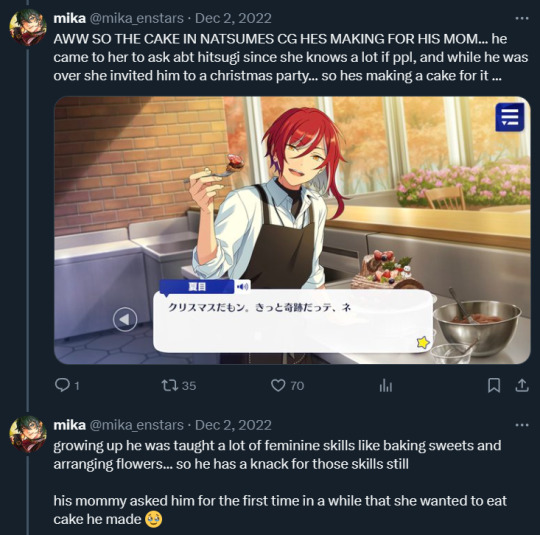
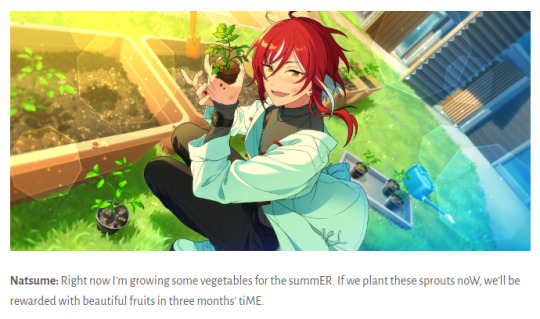
with this and his undying love for his mom in mind, does it not make sense for natsume to hold feminine activities fondly? not only is he quite good at it, but it reminds him of his childhood spent with his mom!! he looks up to her alot!! and hes also thankful for the childhood he had because it makes him feel more unique. literally how does any of this read as a hatred towards femininity or his upbringing??? his mom is literally his number 1 inspiration and shes the reason he had this upbringing to begin with. Frankly the assumption that he hates feminine things just flat out does not make sense
and he doesnt even necessarily mind things like "-chan" either. though this one depends entirely on the person. for example kanata is allowed to call natsume nacchan but if tsumugi calls him natsume-chan blood will be spilt. to re-emphasize the point made in my previous post; natsumes biggest concern is being viewed as weak. he hates being infantilized more than anything. when tsumugi calls natsume "natsume-chan" thats not tsumugi feminizing natsume, thats tsumugi reminiscing on the child natsume he used to know. when tsumugi calls natsume "natsume-chan" it feels like hes not being taken seriously, that hes still viewed as a child, that he hasnt matured (which is also why he doesnt like being called "cute" bc. yknow. kids r cute). and this is a REALLY big insecurity of his. he hates being viewed as naive. In the same vein though, natsume is insecure about not being manly enough too (such as him viewing his inability to swim as "not manly"). Which is also a really interesting point of discussion when it comes to natsumes character! but its important to note that his insecurity in his masculinity does NOT translate to a hatred of femininity. natsumes relationship with gender is an incredibly nuanced one and its so frustrating when people dont even bother trying to read into it and just completely generalize his character
with that said natsume DOES have some internalized misogyny though. But this ones kinda hard to navigate as. well. Almost the entire cast has had some to a certain extent at some point. esp in the early stories. which could all just be bad writing. But it adds to the complexities of femininity and womanhood, how the two are often associated despite being distinct from one another. and with this distinction between the two it adds ANOTHER interesting layer to natsume and his own relationship with gender, because we know he didnt mind being raised as a girl (its just incredibly fucking embarrassing that people know about it), yet his views on gender seem kind of........ Conservative. with him assuming anzu is bad at games bc shes a girl, claiming arashis lying to kids by calling herself a princess, worried that people will view him as less of a man for being unable to swim, etc etc. Like you truly cannot just read ONE story and think you now have a full grasp on natsume and his relationship with his gender. i cannot stress enough how complex it is. but this complexity is exactly what makes it resonate. if you're insecure, it makes sense for you to develop a toxic habit of punching down in order to get higher, esp since we know natsume doesnt handle his emotions super well
this section will be very speculatory and is just my own personal analyzis, so dont take it as gospel. But from my understanding it seems like natsume does genuinely enjoy more feminine things, but hes caught up in gender expectations (potentially due to him knowing both what its like to be a girl and a guy?) that this can cause him to say admittedly quite bigoted things due to his insecurities. natsume is a character that wants to be perceived a certain way; he wants to be cool, mysterious, alluring, but as we should all know by now This is a front he puts on. he very often puts on fronts and lies about his true nature and intentions. which all reads like a fear of authenticity. i dont think natsume genuinely holds those beliefs previously listed, he is just afraid of being vulnerable and, once again, having weak points exposed. he was told to be a girl when he was little and now hes basically told to be a guy without having the Common Guy Upbringing, which can easily turn into developing beliefs of toxic masculinity if you're the type who "plays the part" rather than being your authentic self. hes being told what a man is by the world around him so he tried to shape himself into it to play the part. He can be very blunt and cruel in his words to others, but i personally just see it as a projection from his end. its an attempt at making himself seem better and manlier than he actually is by using his words where hes lacking in action. You can pull off alot of mind games with a simple sentence alone. words can paint a deceiving picture if used correctly, and natsume is a fortune teller; if anyone knows how to say the right thing to get a certain impression from someone its him
i do also think its important to note that as time goes on natsume is starting to express himself genuinely more. Just like the rest of the enstars cast; his story is one of growth and bettering yourself as a person. coming to terms with who you are and learning to let others in
either way. im not one to gatekeep but i need ppl who dont read switch stories to stop speaking so definitively on natsumes relationship with his gender or im gonna start throwing rocks at people
TLDR this shit is NUANCED and to say its 100% this or 100% that does it a disservice to me
#THERE IS SO MUCH U CAN DISCUSS ABT HIS CHARACTER BUT NO ONE CARESSSSSSSSSSSSS#my guy has TOXIC TRAITS!!!!!!!!!!!!!!!!!!! THAT HE IS UNLEARNING OVER TIME!!!!!!!!!!!!!!!!!!!!!!!!!!!!!!!!!!#this is very rambly but whatever. Word vomit#also reminder that gender does not need to be binary. Incase anyone forgot#nat rambles#nat enst posting
58 notes
·
View notes